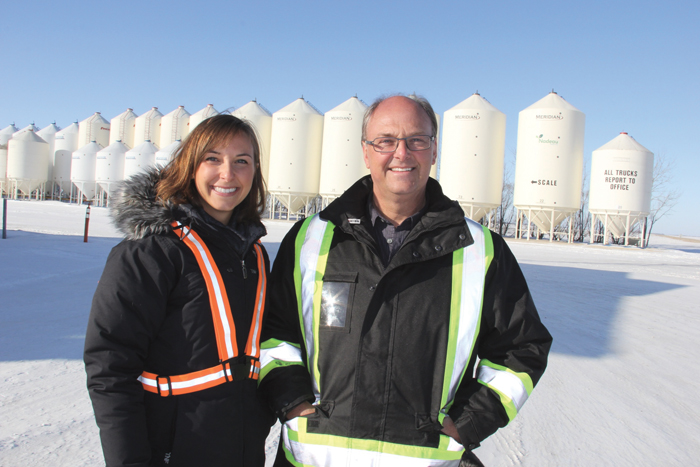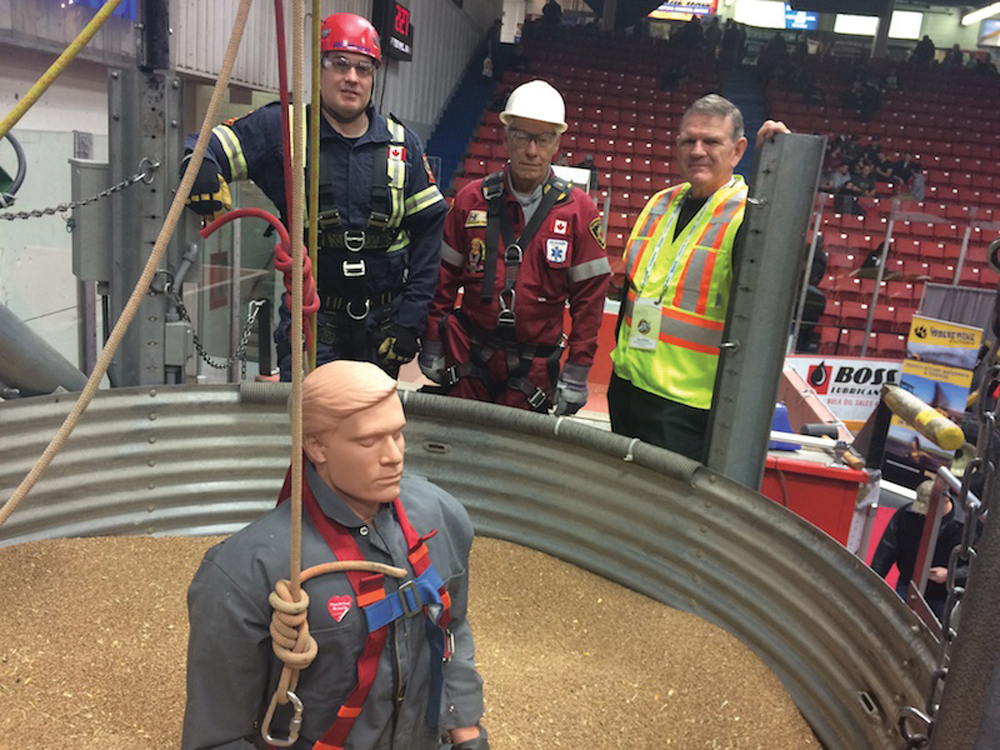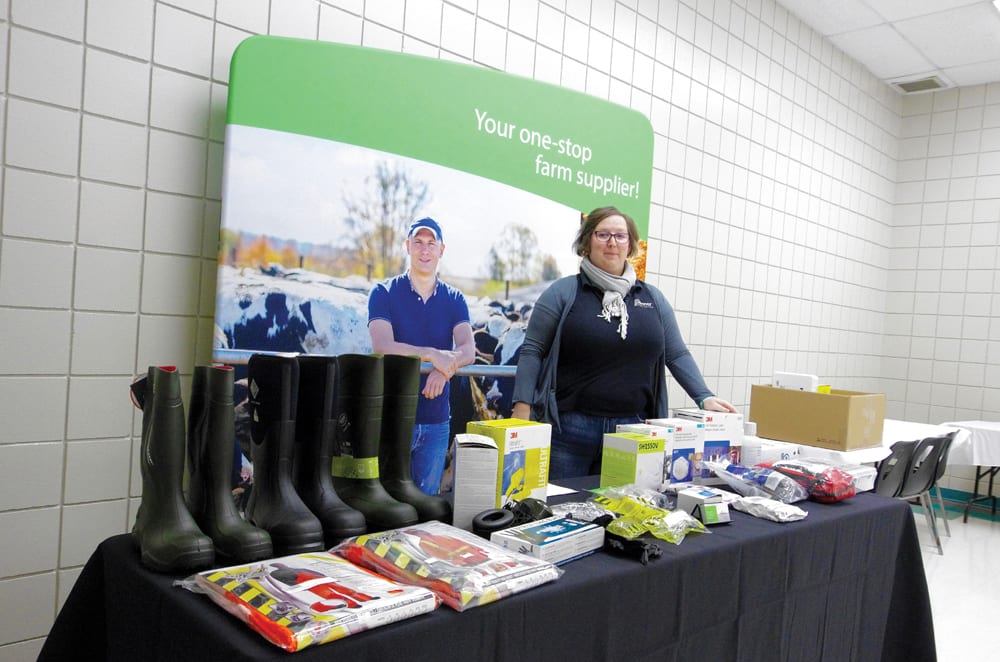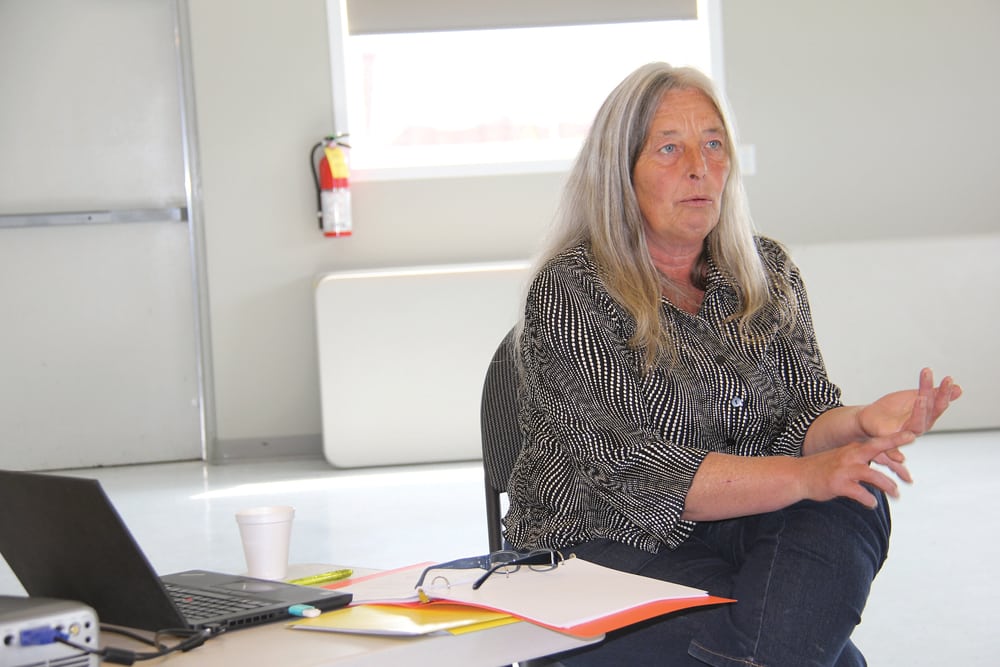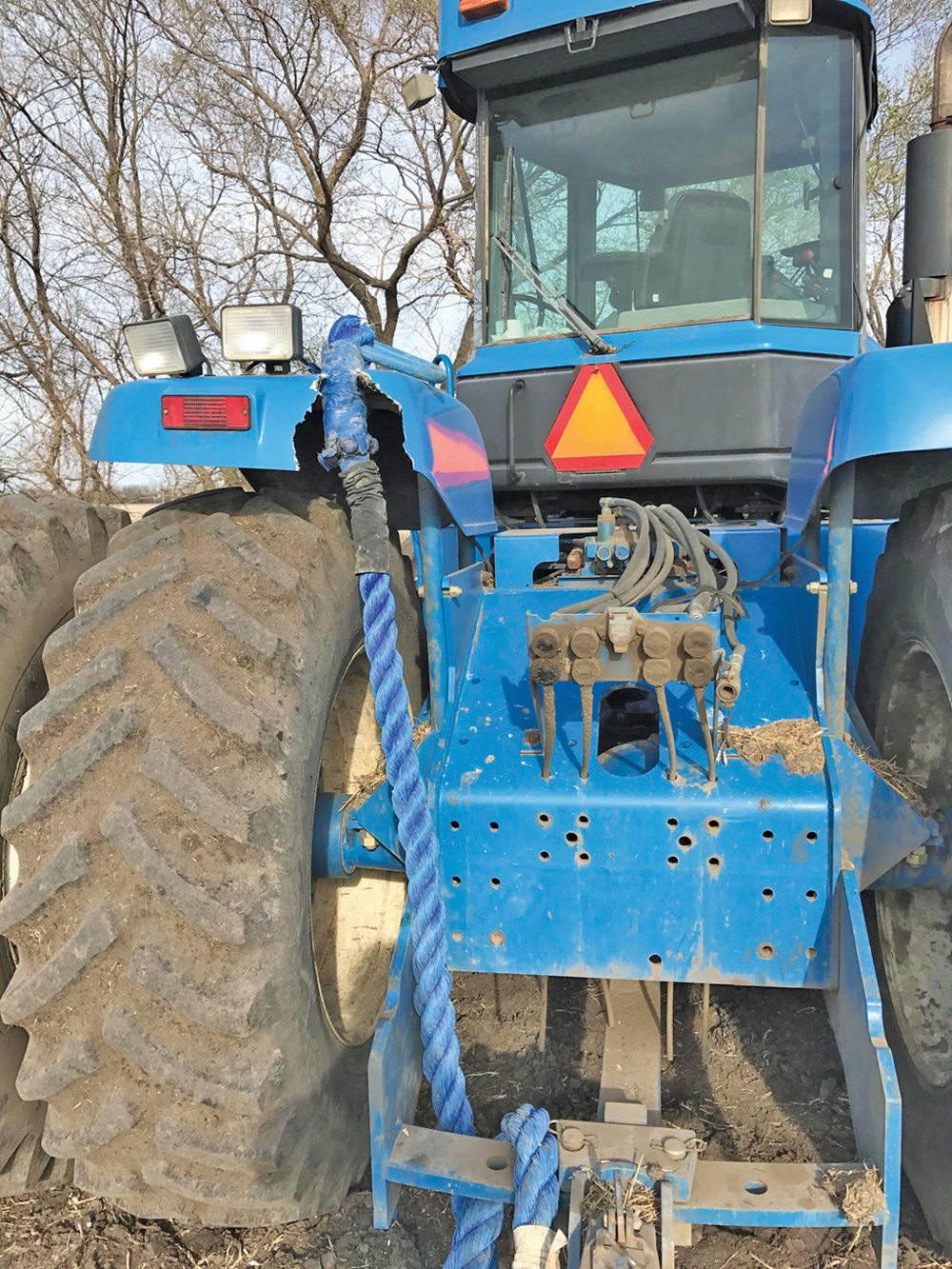The Nadeau farm has been in the family for over 75 years, and its current safety policies reflect the family focus. Making safe practices second nature, they’ve become champions of safety in the agricultural industry.
Nadeau Farm was founded in Fannystelle by Celestin Nadeau in 1938, and in 1966 his son Gilbert expanded the business with a seed-cleaning facility. Today, the operation boasts a fully modernized and upgraded plant that can process 15 tonnes of cereals or soybeans per hour. The business is now operated by Brian Nadeau, his wife Rachelle and their daughter Kara, who represents the fourth generation of the family to work full time at the farm. Kara’s sister Janelle also pitches in during harvest.
Read Also

Farm safety requires grassroots, cultural shift
Better safety on Canadian farms means deliberately choosing the safer way of doing this, even when it flies in the face of what we’ve always done.
Generations of children growing up on the farm made safety a priority to the Nadeaus. Brian remembers his father making an effort to reduce the risks by putting shields over dangerous moving parts on their equipment.
Launching a formal safety program just made these traditions official. “We started this program a few years ago,” says Kara Nadeau.
“With Nadeau Seeds being a family operation, we value family and relationships with everyone.”
Kara herself is the safety co-ordinator, among other roles on the busy farm. She leads monthly safety meetings, and has collaborated with a safety company to create an official safety manual that details the policies for different equipment and procedures.
Brian believes having Kara at the helm has greatly contributed to the success of their program. “The employees bought in more, big time,” he emphasizes.
“Everybody wants safety.”
Kara echoes these sentiments. “When we told them we were going to do this to benefit everyone, they were really on board with it,” she says, adding, “it also is an investment on our part.”
Monthly meetings
Monthly meetings have become a venue for changing employees’ orientation to safety.
“We keep on bringing it up that even though we’re in the midst of our busiest season, we cannot forget safety,” says Kara. “If it takes five minutes longer, it’s OK.”
Brian acknowledges that paying employees by the hour to attend meetings where they’re encouraged to move more slowly may not seem cost effective.
But he also knows accidents are costly and it’s his role to develop a culture where safe behaviour is important. “A lot of people don’t take responsibility,” Brian says, “but having a safety program makes everyone responsible.”
Kara believes the key to safety is communication. “We have to be realistic here,” she says. “Incidents occur and sometimes people want to talk about it afterwards.” But talking about potential risks after an incident has occurred is too late. Instead, open communication with employees lets managers act proactively. “If they’re dealing with equipment day to day, they are the best ones to say whether we need to change something or not,” Kara said.
Kara says many of the best changes centred on making safe work practices more convenient. They’ve purchased winter jackets with built-in safety vests, and earplugs are located in the cabs of noisy equipment. These are a few of the simple changes that have been made to ensure safe practices are second nature. After all, the simplest things can make the biggest differences.
“We promote lots of eye-to-eye contact,” she said. “If someone’s working behind you, you know about it.” They’ve also installed first aid kits, fire extinguishers and automated external defibrillators (AEDs).
David Hansen is the CEO of Canterra Seeds, one of Nadeau Farms’ seed partners, and a strong supporter of agricultural safety. David says working for a company that takes safety very seriously means he doesn’t often discover partners who surpass his own expectations, but Nadeau Seeds does this easily.
“Nadeau Seeds has formalized a health and safety strategy in recent years that is comprehensive and thorough for a company its size,” said Hansen. “They have shown real leadership in this area and I continue to be impressed with their attitude and commitment to safety.”





